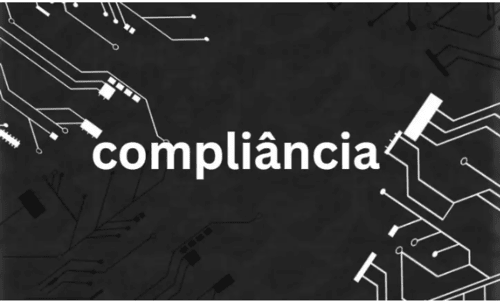What is Compliância? The Key to Business Success

Introduction to Compliância
Welcome to the world of Compliância – a term that is gaining recognition and importance in today’s business landscape. In an era where regulations are constantly evolving, and non-compliance can lead to hefty fines and reputational damage, understanding what Compliância entails is crucial for businesses of all sizes. Let’s dive into this concept, explore its significance, benefits, implementation strategies, challenges, and future trends together.
Understanding the Importance of Compliância
Compliância plays a crucial role in today’s business landscape, ensuring that organizations adhere to laws, regulations, and ethical standards. By prioritizing compliance, companies can build trust with stakeholders and safeguard their reputation. Failure to comply can lead to legal issues, financial penalties, and damage to brand credibility.
Moreover, understanding the importance of compliância enables businesses to operate ethically and responsibly. It fosters a culture of transparency and accountability within the organization. Compliance also helps mitigate risks associated with non-compliance, such as fraud or data breaches.
In a rapidly evolving regulatory environment, staying compliant is key for long-term success. Compliância acts as a guiding framework for businesses to navigate complex rules and requirements effectively. Embracing compliance not only protects the company but also instills confidence among customers and investors alike.
Overall…
Key Elements of Compliância
Compliância encompasses several key elements that are crucial for ensuring regulatory compliance within businesses and organizations.
One essential element is establishing clear policies and procedures that outline the standards expected from employees in terms of ethical conduct, risk management, and legal compliance.
Another key component is conducting regular risk assessments to identify potential areas of non-compliance and implement measures to mitigate these risks effectively.
Training and education play a vital role in promoting a culture of compliance within an organization. It’s important to educate employees at all levels on relevant laws, regulations, and company policies.
Effective monitoring and reporting mechanisms are also essential elements of Compliância. Regular audits and reviews help ensure that processes are being followed correctly, identify any gaps in compliance, and allow for prompt corrective action when needed.
Collaboration between different departments such as legal, HR, finance, and operations is another critical element for successful implementation of Compliância. By working together towards a common goal, organizations can strengthen their overall compliance efforts while fostering a culture of integrity across the board.
Benefits of Compliância for Businesses and Organizations
Compliância offers numerous benefits for businesses and organizations, making it a crucial aspect of their operations. By ensuring compliance with regulations and standards, companies can avoid hefty fines and legal issues that may arise from non-compliance. This helps in safeguarding the reputation of the organization and building trust with stakeholders.
Moreover, implementing Compliância practices can enhance operational efficiency by streamlining processes and reducing risks associated with non-compliance. It also promotes a culture of ethics and integrity within the company, fostering a positive work environment where employees feel supported in adhering to guidelines.
Additionally, having robust compliance measures in place can help businesses stay ahead of competitors who may not prioritize compliance. This proactive approach can lead to long-term sustainability and growth for the organization as it demonstrates commitment to responsible business practices.
How to Implement Compliância in Your Company
Implementing Compliância in your company is a crucial step towards ensuring ethical practices and regulatory compliance. To kickstart the process, conduct a comprehensive assessment of your current policies and procedures to identify areas that need improvement or alignment with regulations.
Next, establish clear communication channels within your organization to educate employees about the importance of compliance and provide them with training on relevant laws and regulations. Encourage a culture of transparency where employees feel comfortable reporting any potential violations or concerns they may come across.
Develop robust internal controls and monitoring systems to track compliance efforts effectively. Regularly review and update these measures as regulations evolve to stay ahead of any potential risks. Additionally, appoint a dedicated compliance officer or team responsible for overseeing and enforcing adherence to compliancy standards throughout the organization.
By taking proactive steps to implement Compliância in your company, you can mitigate risks, build trust with stakeholders, and foster a strong culture of integrity within your organization.
Common Challenges and Solutions for Compliância
When it comes to implementing Compliância in a company, there are common challenges that may arise along the way. One of the main hurdles is ensuring that all employees understand and adhere to compliance regulations consistently. This can be especially challenging in larger organizations where communication may not always reach every individual effectively.
Another challenge is keeping up with ever-changing laws and regulations. Compliance requirements evolve over time, making it critical for businesses to stay updated and adapt their practices accordingly. Failure to do so could result in non-compliance issues that may lead to penalties or legal consequences.
To tackle these challenges, companies can invest in comprehensive training programs to educate employees on compliance standards regularly. Additionally, utilizing technology solutions such as compliance management software can help streamline processes and monitor adherence more efficiently.
By proactively addressing these common challenges with strategic solutions, businesses can strengthen their compliance framework and mitigate risks effectively in the long run.
The Future of Compliância: Trends and Predictions
As businesses continue to navigate the complex landscape of regulations and compliance, the future of Compliância is evolving rapidly. One trend that is gaining momentum is the shift towards more automated compliance processes. With advancements in technology such as AI and machine learning, companies can streamline their compliance efforts and reduce human error.
Another key aspect shaping the future of Compliância is the increased focus on data privacy and cybersecurity. As data breaches become more prevalent, organizations are under pressure to strengthen their security measures and ensure they are compliant with data protection laws.
Furthermore, we can expect to see a rise in international cooperation on compliance standards. With global operations becoming increasingly common, companies will need to adhere to a multitude of regulations across different jurisdictions. This calls for greater collaboration between countries to harmonize compliance requirements.
The future of Compliância holds exciting opportunities for innovation and efficiency as organizations strive to stay ahead of regulatory changes in an ever-evolving business environment.
Conclusion
As businesses and organizations navigate the complex landscape of regulations and compliance requirements, Compliância emerges as a crucial concept to ensure adherence to legal standards and ethical practices. By understanding the importance of Compliância, incorporating key elements, and reaping its benefits, companies can safeguard their operations while building trust with stakeholders.
Implementing Compliância involves a proactive approach towards compliance management, employee training, risk assessment, and continuous monitoring. Despite facing common challenges like regulatory changes or resource constraints, solutions such as technology integration and robust policies can help overcome these obstacles.
Looking ahead, the future of Compliância is expected to evolve alongside technological advancements like AI-driven compliance tools and blockchain for secure data management. By staying informed about emerging trends in compliance practices, organizations can adapt to changing regulatory environments effectively.
In conclusion,
Compliância serves as a cornerstone for sustainable business practices in today’s dynamic global marketplace. Embracing this holistic approach to compliance not only ensures legal conformity but also fosters a culture of integrity and accountability within an organization. As companies strive for long-term success amidst increasing scrutiny on governance and ethics, prioritizing Compliância will undoubtedly be instrumental in achieving resilience and trustworthiness in the years to come.



